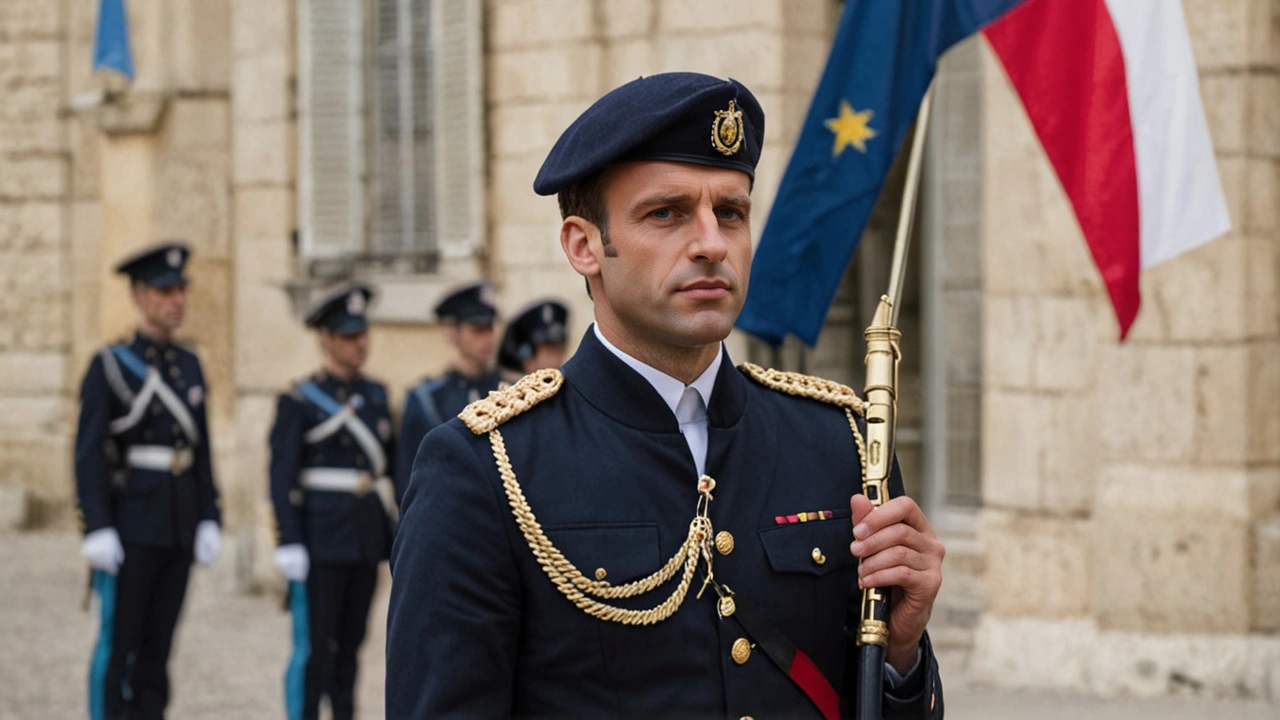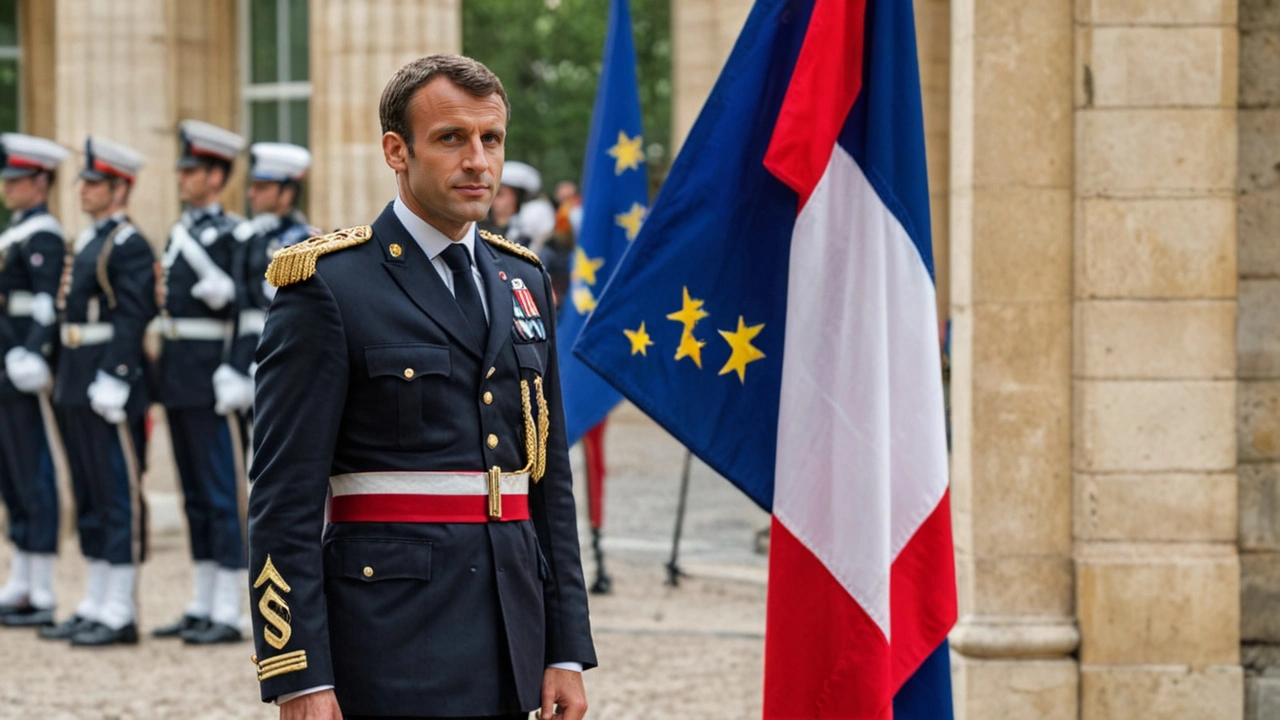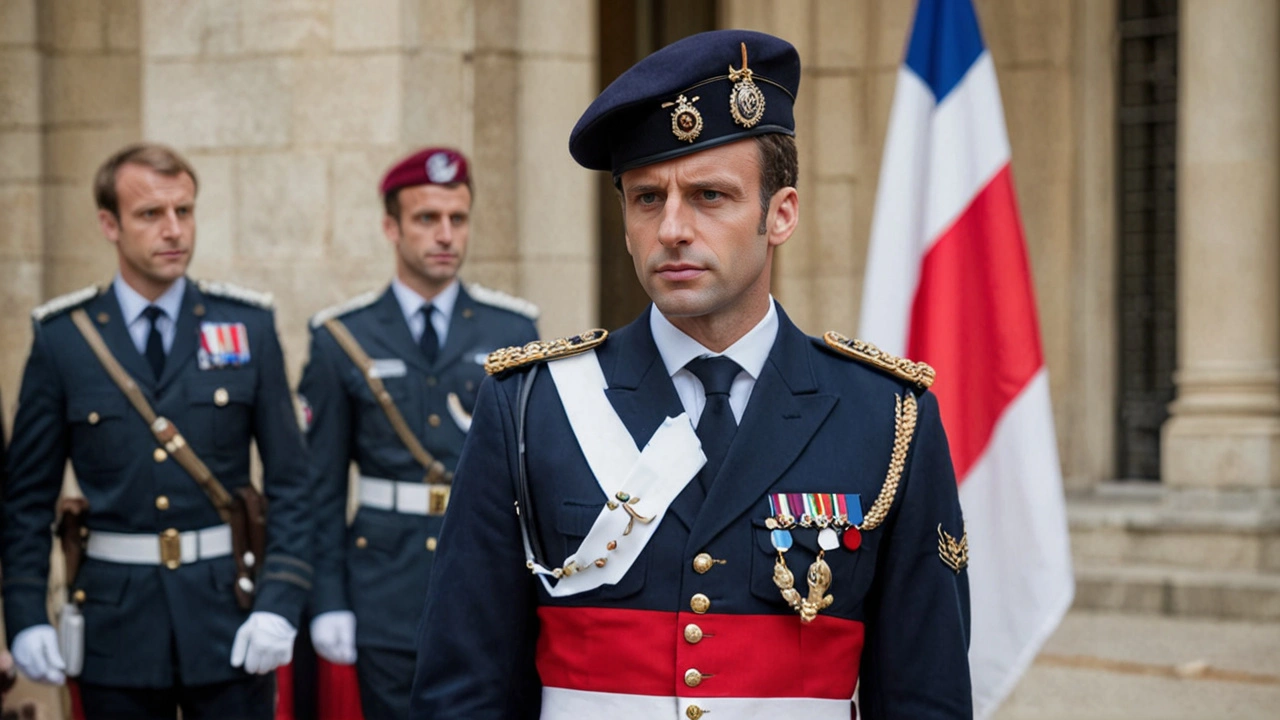French Government Steps Down in Wake of Political Gridlock
The French government has resigned in a dramatic development as the nation struggles through unprecedented political gridlock just before the highly anticipated Paris Olympics. This resignation marks a significant moment in France's political landscape, highlighting the instability that has gripped the country following the recent legislative elections.
President Emmanuel Macron, at the helm of this unfolding drama, is witnessing his government unravel due to the fragmentation of the parliament. This legislative split has created a tumultuous environment, making it nearly impossible to form a cohesive government. The division primarily involves three major political factions: Macron's centrist supporters, the New Front leftist coalition, and Marine Le Pen's far-right National Rally party.
Election Results and Fragmented Parliament
The legislative elections have left no single party with a clear majority, adding to the complexity of the political landscape. The New Popular Front, a left-leaning coalition, secured the most seats; however, they did not achieve the majority needed to stabilize the government. This coalition, which includes France Unbowed, the Socialists, and the Greens, is now facing internal disagreements over prime ministerial appointments, further complicating the situation.
On the other hand, President Macron's centrist supporters have found themselves outmaneuvered, unable to galvanize enough backing to establish control. Meanwhile, Marine Le Pen's far-right National Rally has also emerged as a significant force, adding another layer of complexity to the already volatile political landscape.
Interim Measures and Rising Tensions
In response to the resignation of the government, Macron has tasked outgoing Prime Minister Gabriel Attal and his cabinet with managing the country's affairs temporarily. This move is meant to provide some semblance of stability as France grapples with the aftermath of a contentious election. Attal's temporary stewardship is seen as a stopgap measure, giving the nation time to navigate through its political quagmire.
Amidst this chaos, Marine Le Pen has been vocal in her criticism, targeting both Macron and the left for the ongoing situation. She cites a lack of clarity and direction concerning Attal's replacement as prime minister, fueling further uncertainty and discontent. This criticism underscores the deep political divides that currently characterize the French political scene.
Challenges Ahead for the Leftist Coalition
The leftist coalition, though willing to offer assistance in forming a new government, is hamstrung by internal strife. France Unbowed, the Socialists, and the Greens each have their vision and preferences for the prime ministerial position, leading to a standstill. These internal disagreements must be resolved to present a united front capable of governing effectively.
France Unbowed, led by Jean-Luc Mélenchon, advocates for bold reforms and a radical shift from the status quo. The Socialists seek a more moderate approach, aiming for incremental changes rather than wholesale transformations. The Greens, focused on environmental issues, wish to prioritize sustainable development and climate action in any new government formation. These differing priorities highlight the significant challenge in achieving consensus amidst such a diverse coalition.
Preparation for the Paris Olympics Amid Political Crisis
This political paralysis comes at a critical time as France prepares to host the Paris Olympics. The resignation of the government raises concerns about the country's capacity to effectively oversee the preparations and logistics for such a large-scale international event. With global attention set to focus on Paris, the stakes are incredibly high.
The Olympics are not merely a sporting event; they represent a significant opportunity for France to showcase itself to the world. Efficient organization, security, and smooth coordination are crucial to the success of the games. However, the current political instability casts a shadow over these preparations, raising questions about the ability of a caretaker government to rise to the occasion.

Implications for France and the Wider World
The political turmoil in France has ramifications beyond its borders. As one of the leading nations in the European Union, France's internal stability is essential for the broader cohesion and function of the EU. The resignation of Macron's government sends ripples through the region, affecting not only France's domestic policies but also its international commitments.
European leaders are closely watching the developments in France, aware that the outcome will influence the political landscape of the continent. The fragmentation observed in the French elections may mirror growing polarization within other EU countries. Therefore, how France navigates this crisis could set a precedent for managing similar challenges elsewhere.
Furthermore, the geopolitical landscape is influenced by France's stability. As a key player in both NATO and international diplomacy, French political upheaval can have significant consequences. The questions about France's domestic policy and unity might embolden adversaries and challenge alliances that rely on France's traditionally steady leadership.

Public Reaction and Future Prospects
The French public has reacted to this political crisis with a mixture of frustration, concern, and bewilderment. Many citizens are disillusioned with the current political class, feeling that their interests are not adequately represented amidst the power struggles. Protests and demonstrations have become common, reflecting deep-seated public unrest.
Despite these challenges, the resignation of the government also opens up opportunities for renewal. It provides a chance for new leaders to emerge and for fresh ideas to be brought to the forefront. The process of forming a new government, though fraught with difficulties, can also be a catalyst for positive change.
The path forward for France remains uncertain. The nation must navigate the delicate process of political realignment while simultaneously preparing for the global stage of the Paris Olympics. This period will undoubtedly be challenging, but it also presents a moment for France to redefine its political and cultural identity. How the country responds to these challenges will shape its future trajectory for years to come.

